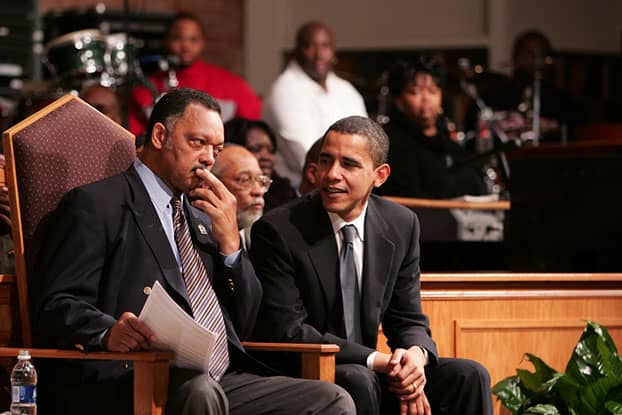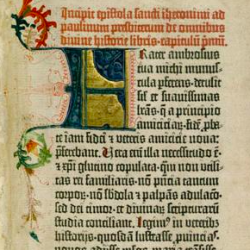 |
| Stephen C. / Shutterstock.com |
Editors' Note: This article is part of the Patheos Public Square on the March from Selma: Fifty Years Later. Read other perspectives here.
The central problem of American politics and culture predates the country's existence by nearly two thousand years. It is the same conflict at the heart of a close cousin to the American experience.
Sitting in the office of Jesse Jackson, whose political activism and civil rights leadership often cause people to forget he was first and is still an ordained minister, easily becomes a church experience when he launches into a sermon. All I needed to do was remind him of the topic of our interview (religion in America), and he transformed his desk into a pulpit and my chair into a pew, giving a homespun homily connecting religion with politics, theology with culture, and the past with the present.
"Constantinian Christianity," Jackson said, referring to the perversion of Christianity that sublimated its prophetic challenge to power into the Roman Empire, "makes people adjust to an unjust order. The Galilean Christians rebelled against the social order."
"Jesus was born in the Jewish religion, and he died in the Jewish religion. He was born poor, under a death warrant, escaped to Egypt as a refugee, eventually a political prisoner and victim of capital punishment." Giving a biographic capsule of Jesus that is loyal to the language of "gospel populism" — the term Marshall Frady used to describe the dialect Jackson has made his own — is part of the politicization of theology Jackson preaches and practices.
He continued, "Jesus expanded the meaning of his faith to include the locked out, and to fight the two orders of his time: the Roman Empire occupying his land and exploiting the poor; and the religious order, which was cutting deals with the Roman Empire."
"To admire Jesus is easy, especially in America where we make him a trophy. We see him on the cross, looking muscular. We know he performed miracles and said nice things," Jackson said, eventually bringing his own story into his sermon. "To follow him is hard. When I went to the seminary, I learned that I had to take Jesus out of my back pocket, and I had to start following him, instead of thinking he would follow me. To follow him, you have to go into the quarantine shelter with the leper. You have to forgive the prostitute. You have to challenge the prevailing government. It is risky, and that's why most people don't accept the rebels of Galilean Christianity, fighting to help the poor and to end war. It isn't just piety. It is justice and poverty."
"I learned in college and in seminary, but I learned all of this most deeply with Dr. King's ministry," Jackson said. In his improvised sermon, he seemed to offer Martin Luther King as the connective tissue between the word made flesh in Jesus and the contemporary struggle for social justice, including the political application of Christian doctrine that Jackson has made the focal point of his life and vocation. "Dr. King said that 'our religion makes us political. Our politics do not make us religious,'" Jackson said, providing a thesis to the King and Christ connection that gives fuel to the engine driving a movement for civil rights and equality.
The majority of American Christians seem divided between the piously neutral —attending church on Sunday, but shopping in the mall on Saturday, and making money Monday through Friday — and the proactively cruel — demonizing gay people, supporting war, blaming the poor for their poverty. The America meets Rome of Constantinian Christianity in a Republican robe is precisely the perversion that Jackson opposes, in word and deed. The political application of Christianity began for Jackson with King, who taught him that "a religious ethic is useless if it does not confront the law." "We had to be religious at the back of the bus to move to the front of the bus," Jackson said, referring to the Civil Rights Movement and the Montgomery Bus Boycott. "The idea that religion is transformative, personally and politically, flies in the face of the cultural flow."
It especially flies in the face of the cultural flow when the culture is insistent on venerating selfishness as virtuous, baptizing greed as spiritual, and condemning those who try to apply the religious-love ethic to the prevailing political ethos. Christ was killed as a dangerous dissident, and according to a Harris poll taken shortly before his assassination, Martin Luther King had a high disapproval rate from most Americans, even most black Americans, in the last year of his life.




